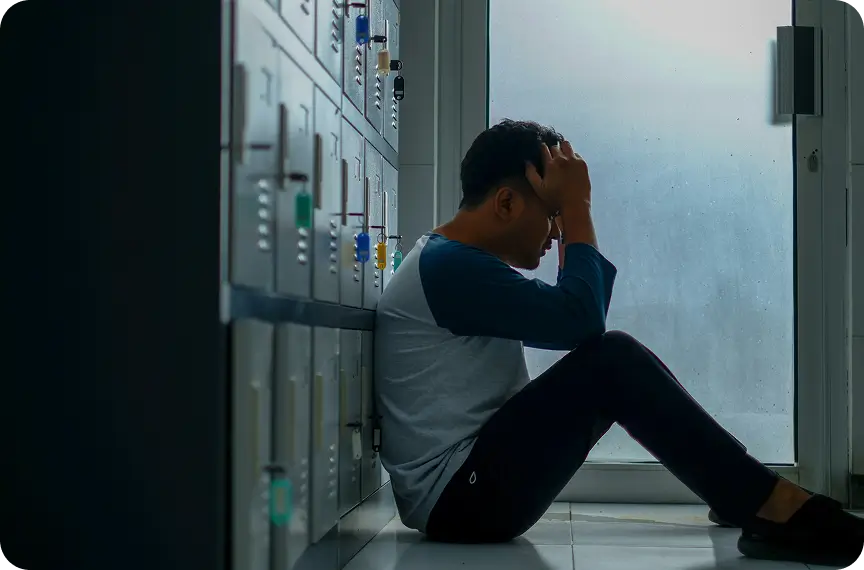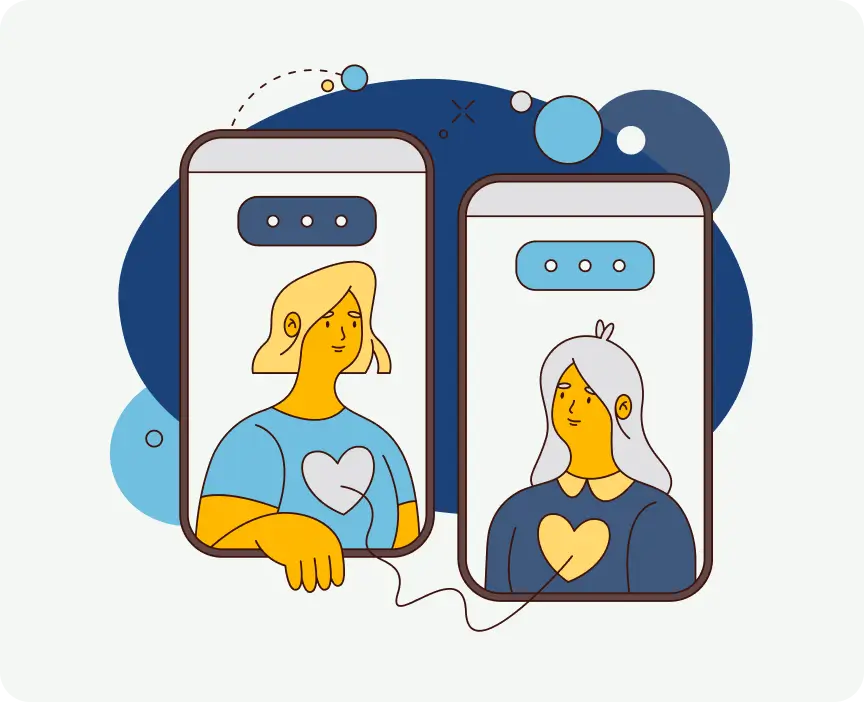Prescription Drug Addiction Treatment in Maine
Many people are surprised that the medications meant to restore us to health can also be the subject of substance use disorders. However, this is the case for many classes of drugs that are prescribed by doctors. Each year, over 16 million Americans misuse prescription drugs. This represents 5.8% of the US population. Of these, 12%, or over 2 million, struggle with a substance use disorder.

Prescription Drug Use Disorder in Maine
Over 16,000 people have entered prescription drug rehab in Maine alone. This last statistic indicates that people can and do find prescription drug abuse help in Maine. Sometimes, this help is a matter of a single phone call.
Of those seeking help, the vast majority of Maine residents struggle with an opioid use disorder. But opioids are not the only drug being misused in Maine, and the number of people struggling with prescription drug use disorder goes well beyond 16,000 people. It affects Mainers from all walks of life, of every race and economic level, and at all ages.

As stated before, opioids are the most misused prescription drug in Maine, but there are others. These include amphetamines, other stimulants, inhalants, sedatives, opiates, hypnotics (used for sleep), anxiolytics (anti-anxiety medication), tranquilizers, and barbiturates. The specific drugs misused range from opioids like Vicodin and Dilaudid to sedatives like Librium.
The National Institute on Drug Abuse lists the most commonly misused prescription medications:
- Barbiturates like Amytal, Nembutal, Seconal, and Phenobarbital
- Benzodiazepines like Ativan, Halcion, Librium, Valium, Xanax, and Klonopin
- Sleep medications like Ambien, Sonata, and Lunesta
- Opioids like codeine, morphine, methadone, fentanyl, oxycodone, hydrocodone, hydromorphone, oxymorphone, meperidine, and propoxyphene
- Stimulants like Biphetamine, Dexedrine, Adderall, Concerta, and Ritalin
- Certain cough medicines like dextromethorphan
Prescription drug misuse is associated with a host of health problems, including:
- Constipation, nausea, and other digestive problems
- Drowsiness and confusion
- Memory problems and confusion
- Decreased pain tolerance
- Slowed breathing
- Irregular heartbeat
- Anxiety, agitation, and paranoia
- High blood pressure
- Insomnia
A targeted treatment plan can help sufferers of prescription drug addiction get back on the right track.
Treatment: A Readily Available and Crucial Step to Recovery
Prescription drugs are created specifically to alter processes in the human body. As such, they hold both great healing power and much danger. When misused, prescription medication can lead to overdose or drug interactions. Luckily, drug rehab facilities and clinics exist to help people overcome substance use disorders.
Several forms of treatment exist to accommodate different schedules, lifestyles, needs, and preferences. At the most basic level, there are outpatient services. Outpatient services help by allowing clients to continue work and other necessary everyday activities. These can include individual counseling, doctor consultations, and support meetings. Intensive outpatient services allow people to attend treatment during the day while remaining in their current living situations. It should be noted that outpatient services like this are usually for people who have completed residential rehabilitation in the form of inpatient services.
Intensive inpatient services often include the same treatment options as residential programs. As such, clients can expect several hours of group therapy, weekly individual therapy, monthly medical appointments, attentive case management, yoga and meditation classes, continuous drug screenings, and training and assistance with prescribed medications.
Partial hospitalization is the next tier of outpatient treatment. It is often the transition between inpatient and outpatient rehab services, though it can also be the first course of action for those wanting to get and stay clean. Partial hospitalization often features more scheduling flexibility, a lower cost than inpatient treatment, and transitional services to help clients better integrate back into everyday life.
In addition to these advantages, clients can expect individual and group therapy sessions. The main difference between intensive outpatient and partial hospitalization treatment is the daily interaction with healthcare professionals such as doctors, nurse practitioners, and nurses. This allows for more intensive treatments like medication-assisted withdrawal.
Residential treatment services are what most people think of as “going to rehab.” Though offering less scheduling flexibility, it does offer the most comprehensive course of treatment. 24-hour monitoring and care are only available in residential treatment centers. Treatment usually lasts between 28 and 60 days.


In residential treatment, medically assisted withdrawal can be performed in the safest possible atmosphere. It also allows a client to be cared for by healthcare professionals day and night. Medications can be adjusted and new treatments can be initiated with very little turnaround. Amenities often feature private rooms and nutritional support to ensure optimal health during detox and treatment.
Other advantages can include:
- Individual and group counseling
- A schedule that maximizes healthy living
- Yoga and meditation classes
- A secluded, discreet place to get clean
- Interactions with nature
- A health and exercise regimen
- Around-the-clock emotional support
Residential rehab has been proven time and again to be the most effective form of drug rehab treatment and is the preferred method of treatment for most facilities. It is also the safest, allowing medical professionals to respond to emergencies and manage pain at any time.
Holistic, Evidence-Based Therapies
Depending upon the length of the substance use disorder or the amount of the drug taken into the body, detoxification could be necessary. Detox gives you the time and attention to withdraw from a drug safely and with as little discomfort as possible.
Often called medically assisted withdrawal or medication-assisted treatment, detoxification puts the client in the best possible position to maintain sobriety. Since many people relapse to avoid uncomfortable withdrawal symptoms, managing these symptoms with careful medication dosing allows the client a better chance to get and stay clean. Detox provides empowering physical and emotional support, and clients are never left alone in the process. Symptoms of withdrawal can set in and change quickly. Detox ensures a rapid response to each stage of withdrawal as it comes.
Therapeutic techniques used in rehab are evidence-based. The foremost of these is cognitive behavioral therapy (CBT). Only the most effective methods are put to use in a proper rehab environment. These include CBT, dialectical behavior therapy, experiential therapy, trauma-informed interventions, motivational interviewing, and other forms of psychotherapy. By involving the body, mind, and spirit, the best rehab centers also engender a holistic approach to recovery, with a variety of treatments and activities.
Professionals at Liberty Bay understand that a substance use disorder may have underlying causes and things that complicate it. People who struggle often have a second diagnosis underlying their disorder. That is why Liberty Bay Recovery places a heavy emphasis on dual diagnosis and treatment and comprehensive support for personalized treatment. At Liberty Bay, no stone is left unturned, and nothing is left to chance. We can and will work hard to reach the root of your substance use disorder and give you the best possible tools to manage it.

Liberty Bay Recovery as Your Best Choice for Treatment
Liberty Bay Recovery offers holistic, evidence-based treatment courses for prescription drug use disorders. Our staff brings multiple techniques and approaches to bear on substance use treatment.
Each of the aforementioned evidence-based therapies is employed at Liberty Bay. We endeavor to treat the whole person, not just the substance use disorder. Our holistic approach includes exercise, excursions in nature, recreation, and a highly structured schedule. Our team will help you find and grow the life skills necessary to avoid triggers and prevent relapse. Through our methods, our professional staff brings hope to clients who are struggling with substance use, prescription or otherwise.
The Holistic View of Drug Treatment
In treating the whole person, Liberty Bay places equal emphasis on the mind, body, and spirit. This holistic approach increases the chance for long-term recovery with fewer instances of relapse. At Liberty Bay Recovery, the emphasis is on the person and not just the disease.
By attending to the physical, mental, and emotional aspects of a substance use disorder, you can build a healthy lifestyle with multiple levels of resistance to relapse. The more tools a client has at their disposal, the better the chances of lasting sobriety.

Why Choose Liberty Bay Recovery?
In addition to being one of the foremost rehab centers in Maine, Liberty Bay treats clients who are suffering from all stages of the disease. It starts with detoxification and medically assisted withdrawal and continues with psychological, emotional, and spiritual treatments to form a strong foundation for recovery. It concludes with ongoing support as you reintegrate into daily life, free of problematic prescription drug use.
In short, not only does Liberty Bay treat the whole person, but we also follow you through each stage of recovery, helping you find the tools to maintain sobriety through the rest of your life.
Liberty Bay: Empowering Recovery in Maine
A substance use disorder can affect every aspect of a person’s life. It can impede relationships, jobs, homes, and happiness. In its most extreme form, it can even take your life. Finding your way to recovery allows you to reclaim your life and embrace exciting new possibilities. You can have new hope for the future. When you are free of the hold drugs can have on you, you can have true agency and find your happiness. Contact Liberty Bay Recovery Center today to begin your journey back to freedom.
RESOURCES
Addiction Recovery Blog
June 19, 2025
Addiction can significantly impact the entire family dynamic Roles shift routines change and relationships can...
May 19, 2025
The liver naturally detoxes your body but what happens when it s overwhelmed by substance...
February 16, 2025
Most people know that drinking too much alcohol can harm their health but many don...




